Pokémon Legends: Arceus Takes A Step Forward, But A Flight Of Stairs Back
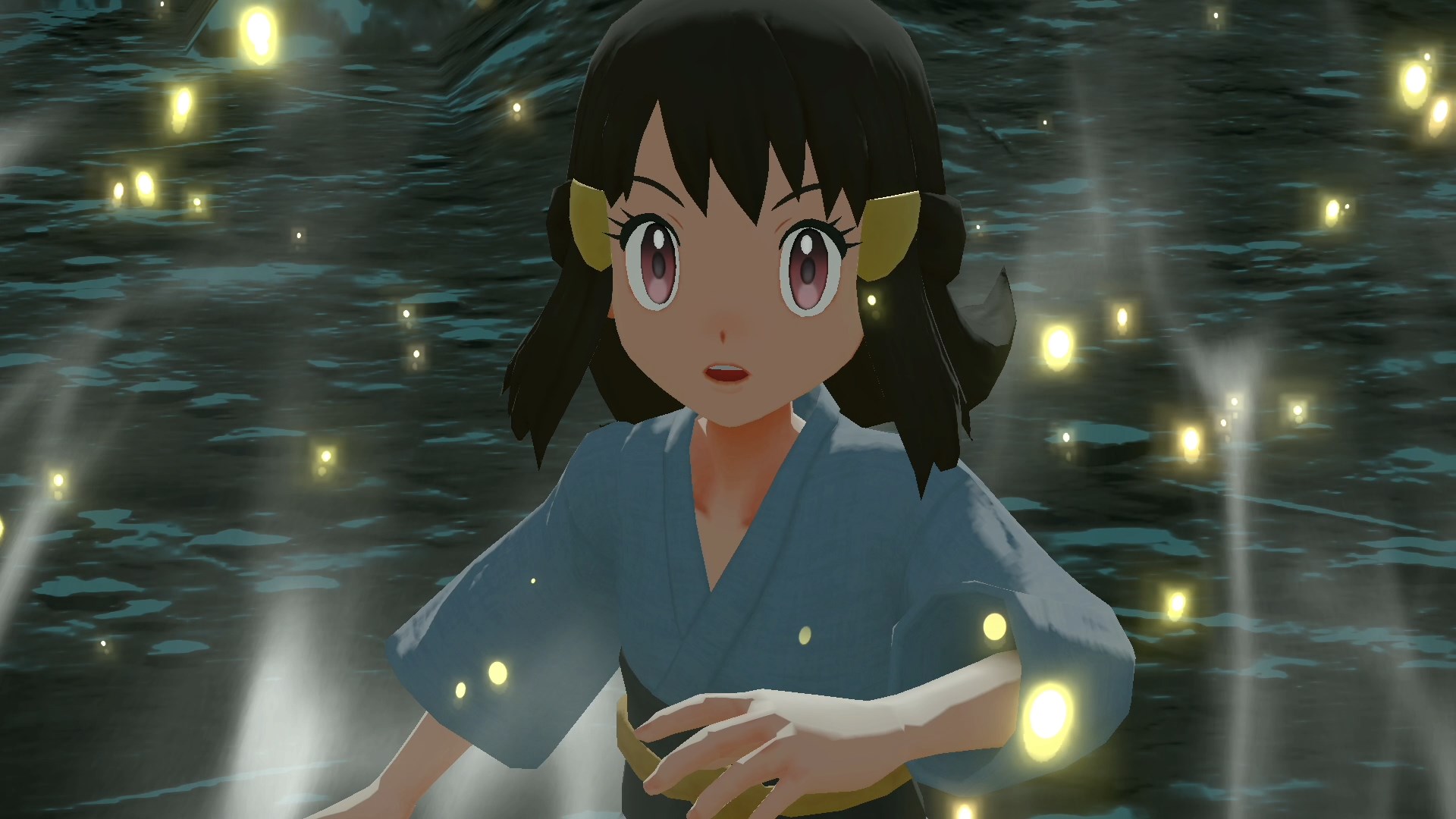
When it comes to video games, you won’t find a more household-friendly name than Pokémon. Known far and wide for its addictive gameplay loop of collecting curious creatures called Pocket Monsters, the Pokémon games have thrived on this simple but effective concept.
The idea of starting as a fledgling nobody and becoming the best Pokémon trainer like no one ever was is a fun concept, bound to make any child giddy with excitement. It’s the promised fantasy that just about all the Pokémon games offer, and one that many people are content with so long as that same magic remains.
But with so much time that has passed since the first Pokémon game launched in 1996, stagnation has undoubtedly become a growing concern.
In truth, the franchise has not budged from its turn-based roots. Stories have maintained a formulaic structure, of journeying to battle Gym Leaders and fending off the big baddies while you’re at it. Meanwhile, new and obscure features such as Super Training, Z-moves, Dynamax, and more dominate discussions even while the core gameplay remains fundamentally unchanged.
Pokémon Legends: Arceus looks to be, to a degree, a response to that stagnation. On the back of the physical cover, the game proudly proclaims that it is, “Action meets RPG in a new kind of Pokémon adventure!” But to what extent does the game nail this slogan? Throughout my 30-40 hours of playing through Arceus, I’ve come to have some ideas on what the game is trying to achieve, how it succeeds, and also where it struggles.
Stories Left Untold
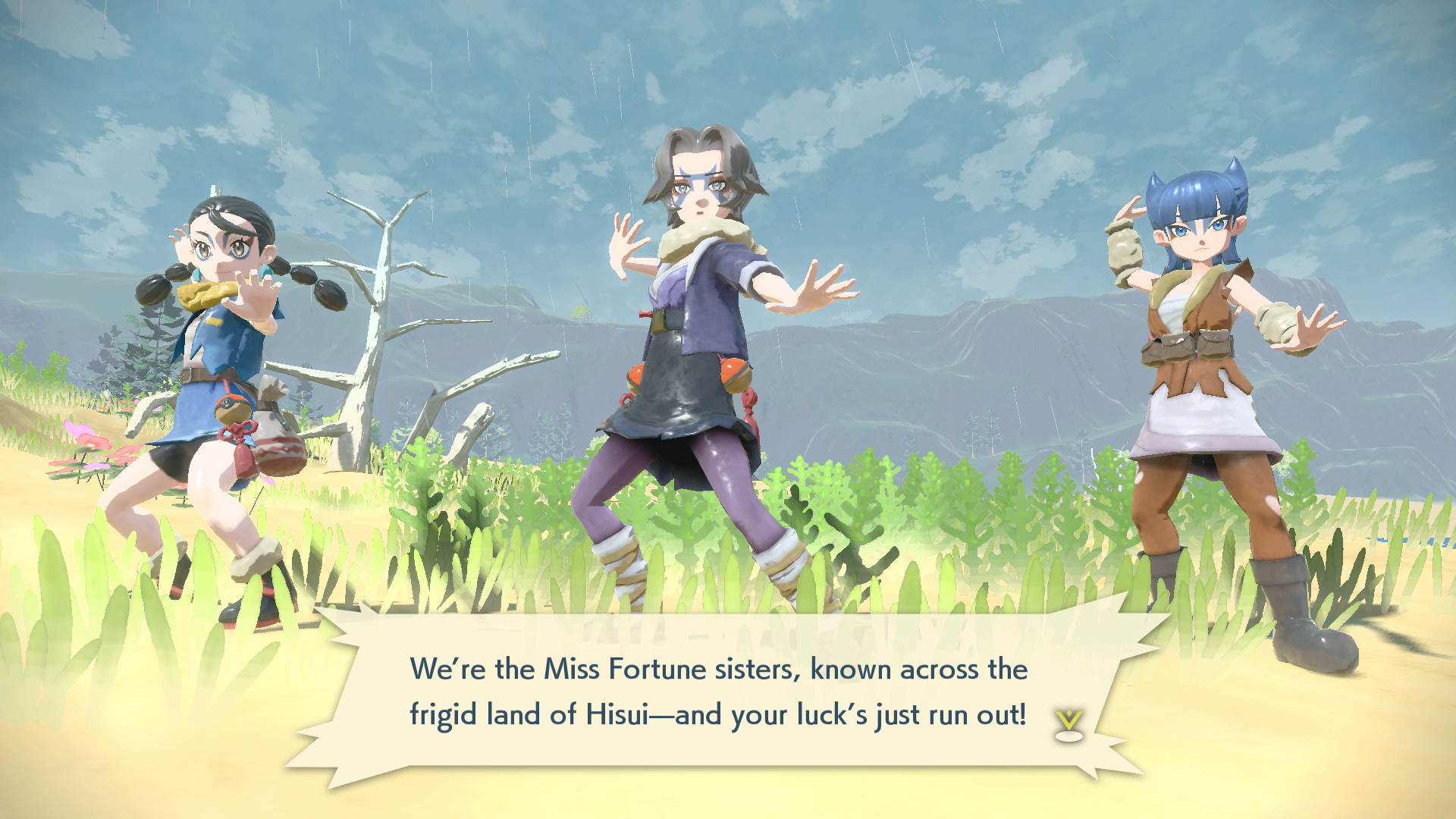
To begin, Arceus is an open-world adventure game set in the distant past of Pokémon Diamond and Pearl’s Sinnoh region, then known as Hisui. Hence, instead of the modern look we’re so used to with Pokémon, Arceus’ aesthetics take inspiration from feudal-era Hokkaido, Japan, with the clothes, buildings, and cultures to match.
You play as a nameless boy or girl who is thrust into the distant past by a mysterious Pokémon and given one task: to catch all the Pokémon. On paper, this is a likely traumatizing phenomenon to experience, especially to a protagonist who appears only in their teens. But your character takes it in stride, and so do the NPCs you meet.
It should be weird and a little alarming that you fell from the sky and right smack into foreign territory, but thanks to your nifty Pokéball-throwing skills, the locals would rather induct you into Galaxy Team’s Survey Corps, where they can squeeze some labour out of you by filling out their Pokédex for them. Well, so much for seeing friends and family again, I guess.
I get that this is par for the course. Pokémon is rarely known to tell riveting stories, so why expect it now? Countless arguments could justify the games’ poor writing, a prominent one being that they’re games made for kids, so things should be simple. There’s also the argument players just want to hop straight into gameplay, so a dense story is unnecessary.
And yet, Arceus is quick to reference abstract concepts such as time and space. It’s also perfectly fine with sitting you through loads of unvoiced exposition on people, places, and Pokémon you haven’t even gotten the chance to see. All of this is arguably difficult stuff for kids, compounded even more by the game’s glaring lack of in-game cinematics that could have no doubt also smoothened the narrative flow.
Characters exist to simply move things along, and crucial questions you may have are never answered. The classic emotional bond between humans and Pokémon at the heart of the franchise also rings hollow, as Galaxy Team settles in Hisui and tasks you with catching wild Pokémon without much regard for ethics, in a manner that mirrors the tenuous colonial relationship between Japan and Hokkaido’s indigenous Ainu tribe, the inspiration for Hisui’s Diamond and Pearl Clans.
The story is very much a disappointment, seemingly only there to tell you how to get from point A to point B. For once, I would have loved for Game Freak to go for a more emotional tale that tugs at the heartstrings like how the Pokémon anime has achieved on occasion. Alas, that’s not to be seen here.
Gotta Catch ‘Em All
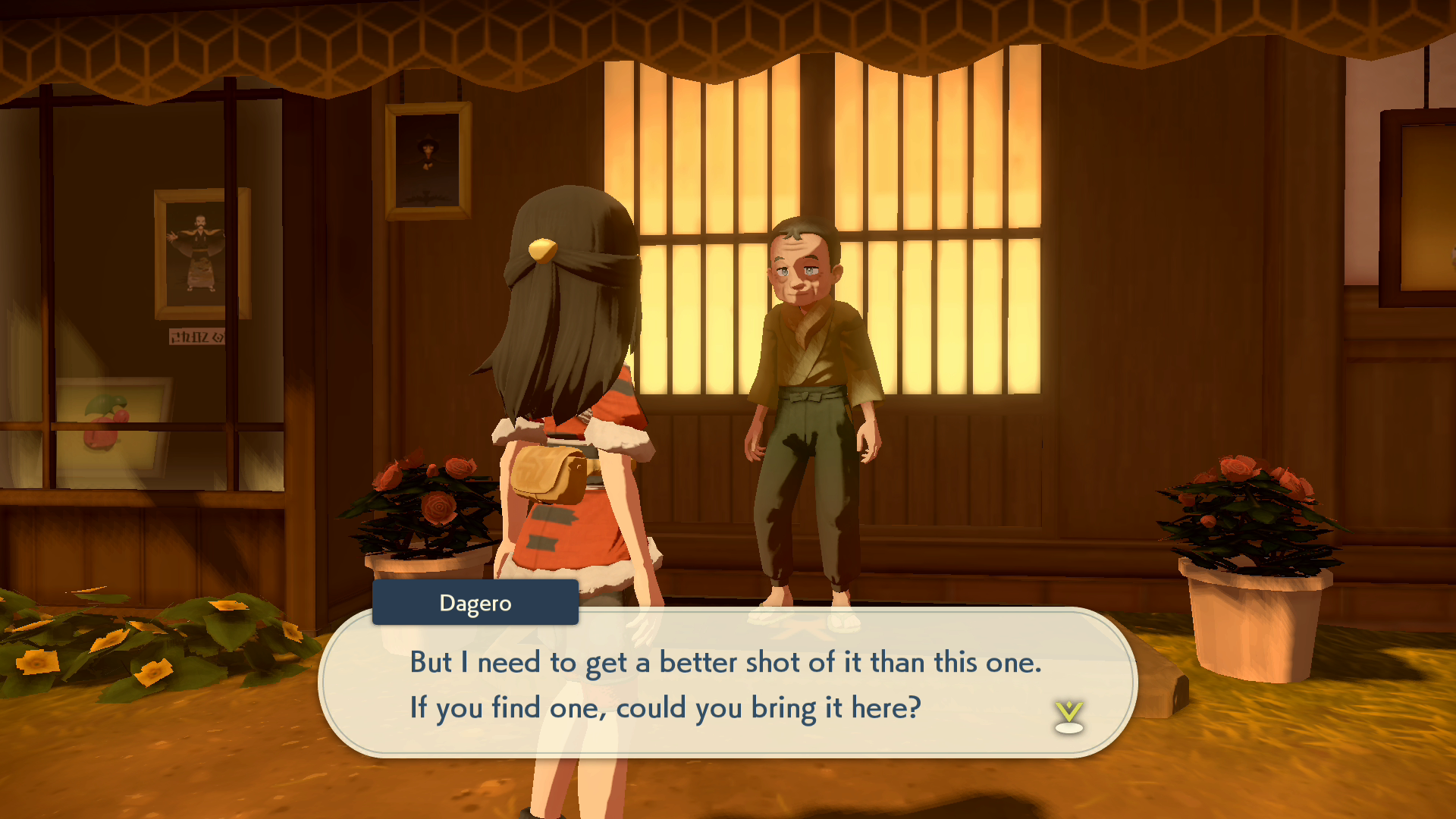
But enough about story. How does the game play? Well, compared to previous Pokémon games, Arceus has taken great lengths to reinvent its usual gameplay loop. Perhaps the most obvious is the way catching Pokémon works.
In older games, catching Pokémon would involve starting a battle, weakening the wild Pokémon, and then throwing a Pokéball to finally seal the deal. This is all still possible in Arceus, but will likely not be your main way of catching Pokémon.
Instead, Pokéballs can be thrown in real-time and without the need for battle. This is thanks to the game’s commitment to being a sprawling open world where Pokémon happily roam its lands.
Gone are the random encounters of old. Instead of being wary of tall grass, now you get to sneak your way through them and watch your favourite creatures in their natural habitats. If Pokémon spot you, they may rush in, scamper away, or even pepper you with magical energy from a distance.
If you were ever one of those beady-eyed kids whose imaginations went wild envisioning yourself living in a world filled with awesome and dangerous Pokémon alike, Arceus is the closest you’re getting to that experience.
And as for the process of catching them? All you need is a little bit of stealth, as well as some luck. To help with this, Arceus introduces various items to assist in your overworld escapades.
Can’t find any nearby tall grass? Then use a smokescreen and stealth spray to close in on the Pokémon. Accidentally caught the attention of a swarm of them? Throw out a scatter bang set and make your escape.
Much of the old way of catching Pokémon has been exchanged for an expedited and less dull process through these new features. There’s a noticeably smaller focus on Pokémon battles here as catching Pokémon also counts towards EXP gain, and your real-time Pokémon-catching spree is only really limited by how many Pokéballs you have on hand.
However, with how much easier and immediately satisfying Pokémon catching is now, some significant changes have also been made to how the Pokédex works. Your handy encyclopedia of all things Pokémon now doesn’t complete an entry upon catching a Pokémon.
Instead, Research Tasks are assigned to each Pokémon entry with some basic goals attached, such as catching a certain amount of Pokémon, watching them do a move a certain number of times, etc. Level up your Research Level to 10 and that Pokémon entry will count as completed.
It’s simple enough of a concept, and one that I found to be surprisingly relaxing. Despite the added work, the variety of goals allows for some flexibility in how you complete them. Whether you’re battling or catching a lot of the same Pokémon, it’ll contribute to your Pokédex progression regardless.
For the more common Pokémon species, I never found myself struggling to fill out their Pokédex entries, with a species’ completion more or less just boiling down to how often I engaged with the species in general.
But where Pokémon catching can be a fulfilling task, the same cannot be said for the battles.
Trading Blows
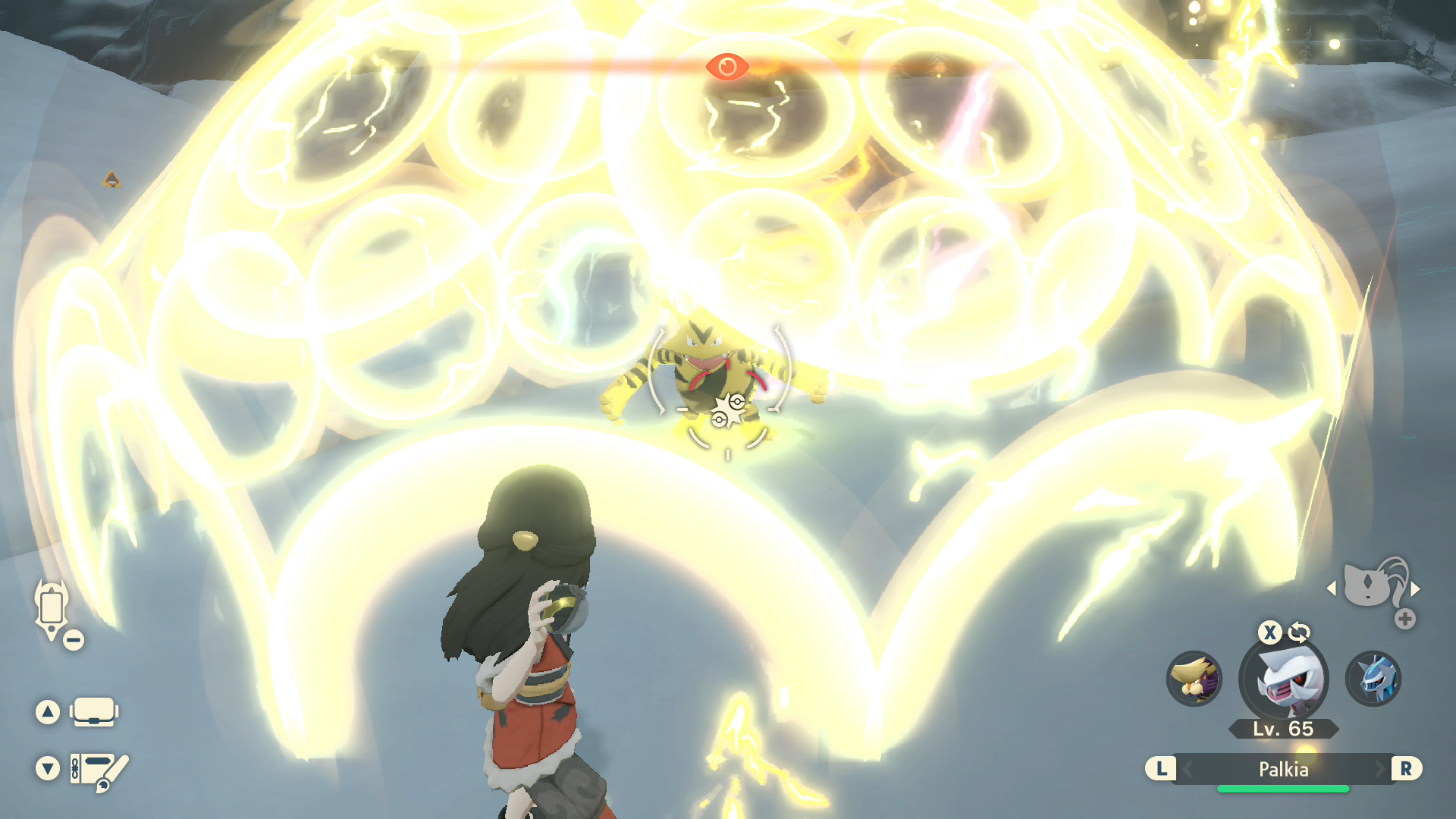
If you’ve played Pokémon before, then Pokémon battles are more or less the same as previous titles but with a few adjustments. The most noticeable and positive change right off the bat is that battle transitions are completely gone.
Pokémon battles now happen seamlessly in the world, which I found gladdening as it removed the tedium of enduring loading screens, however brief. Of course, seamless transitions aren’t an uncommon sight in other games, but Pokémon has sorely lacked this for a while.
Damage has also been amped up significantly, but the results here are mixed. While it’s easier for you to one-shot wild Pokémon, the same can also happen to your own. Pokémon battles now feel like slugfests that are highly dependent on who has the “Super Effective” move more than anything.
The result of this is that moves that confer buffs, debuff, or status effects have lost their viability because of how quickly KOs can happen. Why would I ever use Bronzor’s Iron Defense if it’s just going to get knocked out immediately after, for instance? Even healing often feels like an exercise in futility – you’re better off just spending your turns dishing out damage until your Pokémon eventually faints.
Game Freak has also added some new mechanics called Strong and Agile Styles to Pokémon moves. The basic gist of these styles is that you can either sacrifice turns for better move effects (Strong Style), or sacrifice those effects for the ability to act sooner (Agile Style).
I can see the intent here, especially when it comes to adding some strategic depth to Pokémon. I even recall how Final Fantasy X, which uses a similar kind of turn order system, began to trend on social media after many people learned that Arceus would have it.
Sadly, none of those grand expectations ever really come to fruition here. Strong and Agile Styles are highly restrictive, and never work out in the same ways that the aforementioned FFX did.
Agile-Style moves, for instance, are made so that they only affect turn order much later into fights, yet damage across the board is so high that fights inevitably have to end quickly. Similarly, Strong-Style moves are so punishing that it’s rarely viable to use them unless you intend to deliver the coup de grace on the opponent. If there is a strategic layer to be seen here, it’s so minor that you wouldn’t even miss it were it removed from the game.
Another casualty of Arceus’ damage-intensive meta is the amount of fainted Pokémon you’ll be managing. Frustratingly, despite how easy it is for your lineup to get KO’d from freakish one-shots, fainted Pokémon do not receive EXP.
Even in trainer battles or boss fights where fainting is expected, the game will simply not give your fainted Pokémon the EXP, even though such fights give out a large amount.
In the overworld, fainted Pokémon means either spending valuable revive and healing items or making the tedious journey back to camp. It wasn’t uncommon for me to accidentally catch the attention of a wild Pokémon, and then immediately flee despite my completely healthy team. The potential losses from a skirmish were simply too much of a hassle and actively discouraged me from even considering Pokémon battles.
It’s The Dark Souls Of Pokémon… Maybe
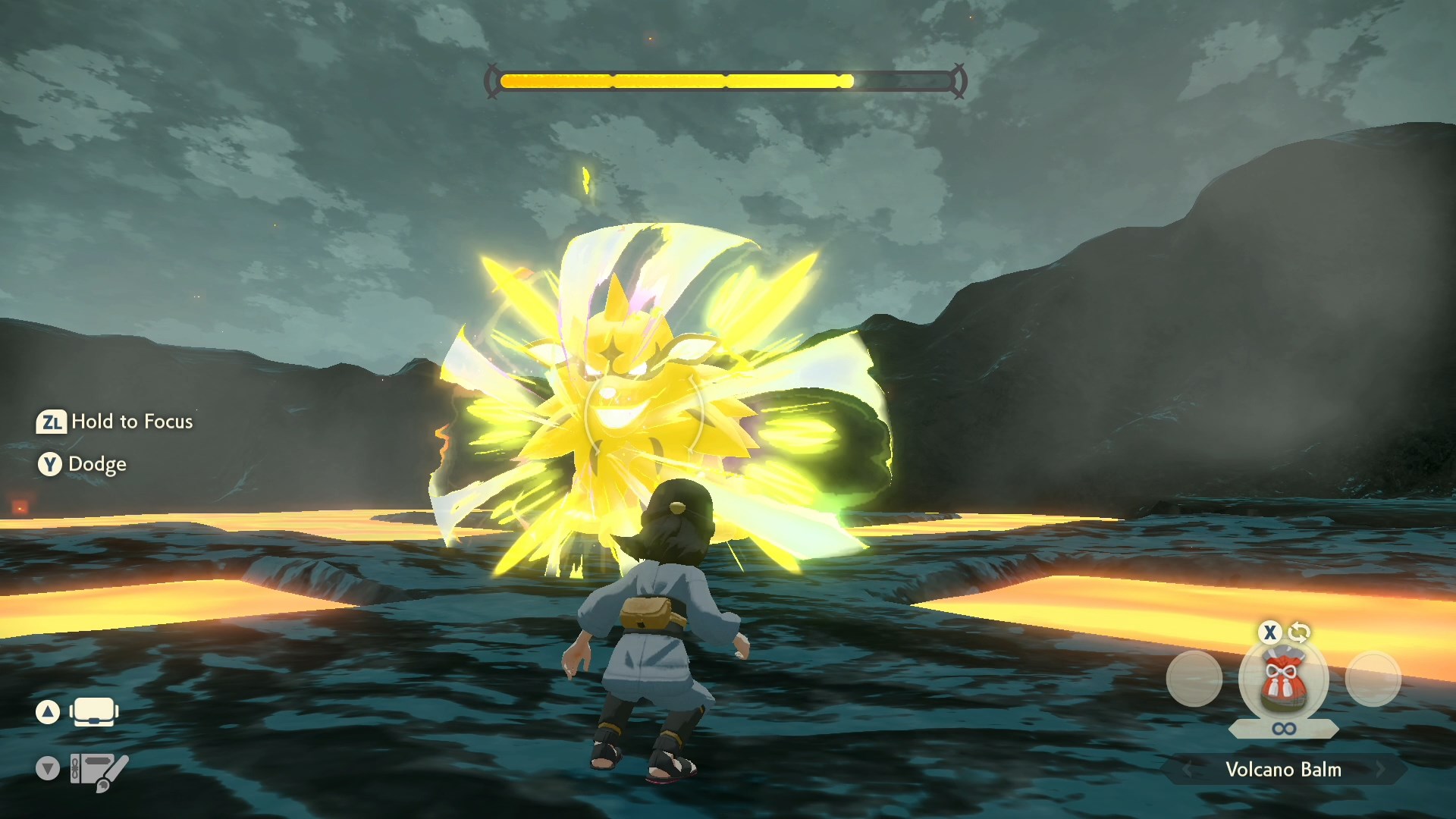
Speaking of hassles, let’s talk about Noble Pokémon. Noble Pokémon are Hisui’s guardians and basically your replacement for Gym Battles in Arceus. Unlike most Pokémon battles, your encounters with Noble Pokémon place a big emphasis on action, encouraging you to dodge attacks while throwing balms at the bosses to quell their frenzy.
The intended way for you to engage in these fights is to throw balms, and then begin a Pokémon battle once a certain threshold is reached. Your balms become more effective by winning the battle and the action segments get easier.
However, if you know your way around an action game, it is also possible to throw balms endlessly and hold out until you eventually deplete the Noble’s frenzy gauge. This is probably the best-case scenario because now you’ll never have to battle and your Pokémon won’t ever risk losing out on EXP.
With all these factors in mind, the design for Pokémon battles, in general, leaves a lot to be desired. It’s punishing, slow, and random. It conflicts with various other goals in the game when it’s optional and often feels like a means to an end whenever you are forced into battle.
The high-damage nature of Pokémon battles Arceus feels like Game Freak’s way of minimizing your time spent in them, to establish a better rhythm for the Pokémon catching, but that alone has resulted in side effects that diminish strategy and, at times, creates frustration.
If there’s any silver lining to this, however, it’s in Arceus’ progression. As mentioned before, catching Pokémon nets you a decent amount of EXP. But this also applies when using your Pokémon to collect items from trees and rocks. It keeps the open-world exploration engaging, and you’ll never feel like you’re missing out even if all you’ve done is toss Pokéballs for the past few hours.
One of the changes I highly appreciate is the streamlining of Effort Value training. Instead of training your Pokémon’s EVs through the many obtuse methods that have existed throughout the series’ history, EVs are now upgraded simply via Grit items.
There are plenty of ways to obtain these Grit items that I won’t go into detail about, but I have to say that being able to use my favourite Pokémon without the nagging feeling that I messed up on its EVs at any one point is liberating. I sincerely hope that future Pokémon continue with quality-of-life features like this moving forward.
When It Rains, It Pours
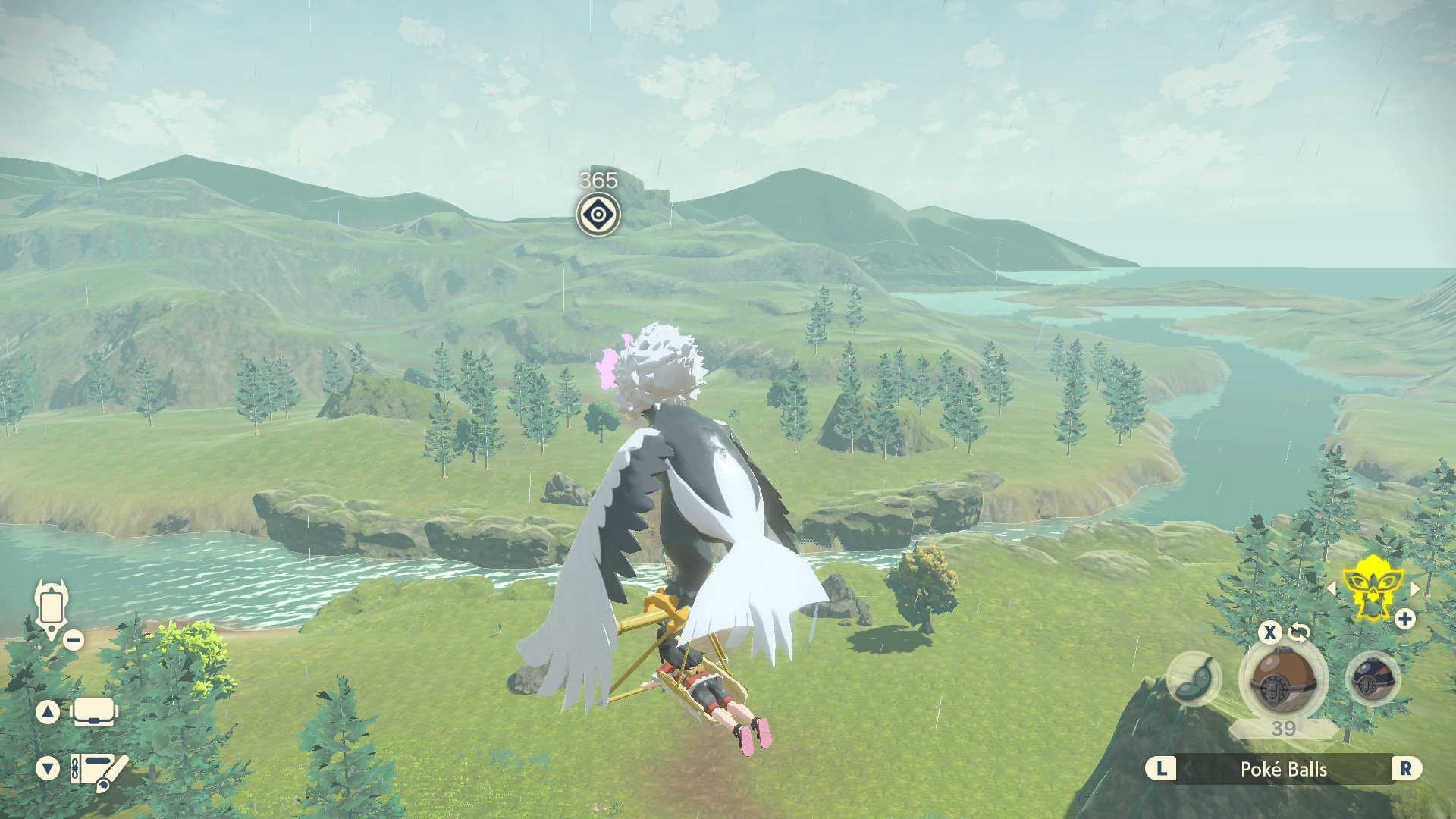
After all, that’s been said, it wouldn’t be right to sign off on this without addressing the elephant in the room: the visuals.
The Nintendo Switch is understandably a gaming console with big limitations, so bashing on Switch games due to bad visuals can sometimes feel like a bit much. But it’s also undeniable that Pokémon is one of the biggest game franchises out there, so it is not without the means – far from it. Even within Nintendo’s first-party lineup, smaller games such as The Legend of Zelda: Breath of the Wild or Xenoblade Chronicles 2 have successfully tackled open worlds with visuals that put Arceus to shame.
There’s no subtle way to put it. The world is ugly, filled with noticeable texture pop-ins, simplistic vegetation, and barely any memorable landmarks. More importantly, it’s bland, populated by NPCs that provide some of the most tedious side quests an open-world game could have, as well as settlements that serve no function other than to act as meager decorations to a lifeless world.
Where this lack of care truly comes to bite is when you’re roaming the watery parts of Hisui. It’s almost impossible to make out any of the water Pokémon through Arceus’ poor water effects, making capturing them almost a bigger hassle than they’re worth when you struggle to aim your Pokéballs, let alone sneak up on these creatures.
Where various technical limitations in Arceus could have been addressed with some artistic flair, Game Freak has made little attempt to do so, if at all.
Gotta Catch Em’ All, But Can’t Win Em’ All
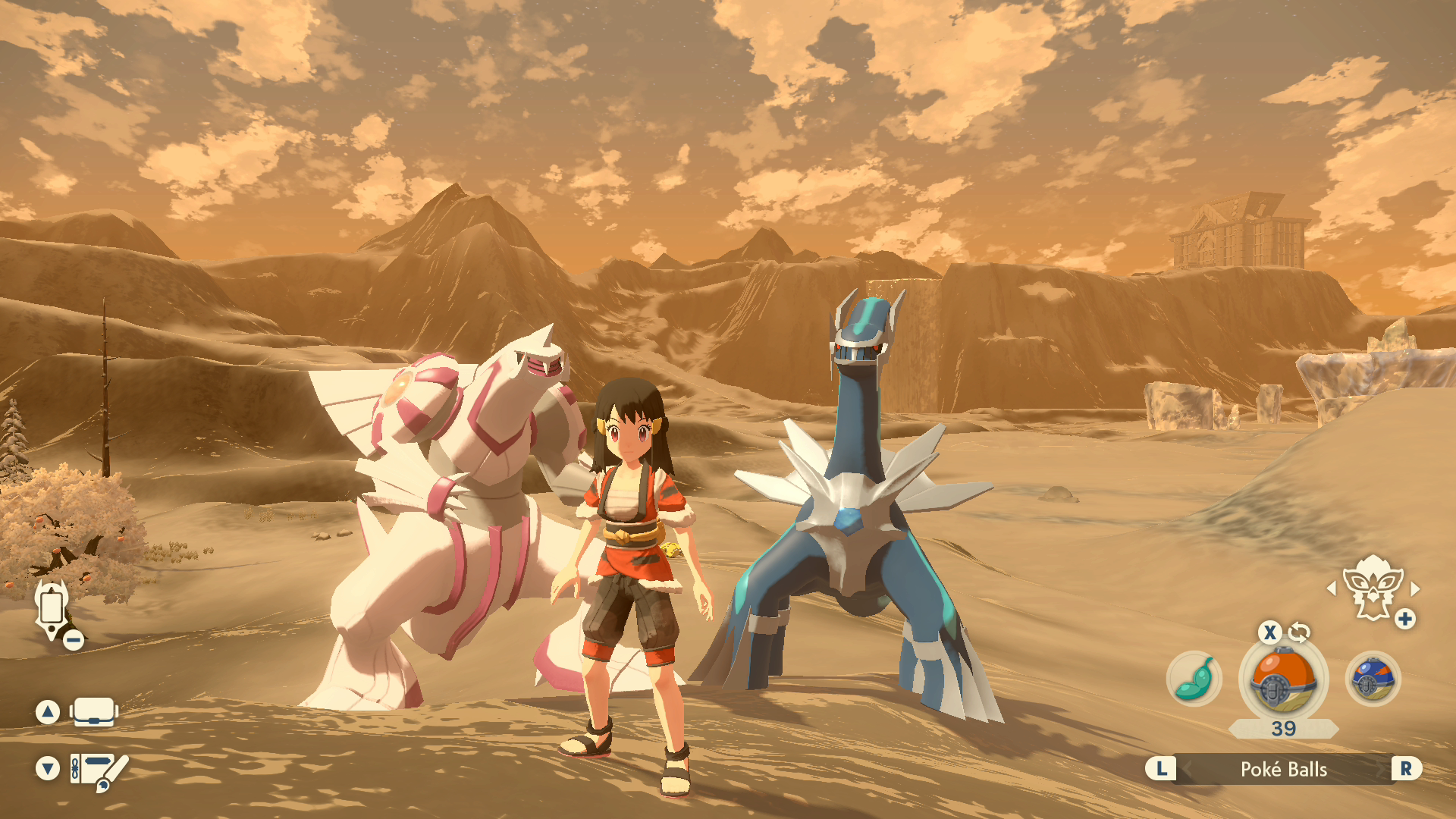
The positives of Pokémon Legends: Arceus’s experimental take on the old Pokémon formula haven’t gone unnoticed. The shift to a more dynamic open environment has made capturing Pokémon more engaging and fun than ever. The game’s progression systems have also received fresh coats of paint that are open to more nuance, thus having greater appeal to a modern generation.
But Arceus is also mired in an unimpressive world, both unattractive and devoid of meaningful secrets. Its battle systems are uncooked, its characters and bosses boring, its map and fast travel UX cumbersome, and the collect-a-thon that comprises the game’s final act is not only absurdly grindy but also practically inaccessible, forcing you to rely on either guides or sheer dumb luck.
It’s a game that could be better, and despite its ability to sell millions with ease, fails in areas where other franchises were forced to do better long ago. There’s a great game in here for Pokémon fans that have learned to roll with Pokémon’s many outdated antics, but I hope the games someday find their stride to captivate in the same way that the Pokémon: Twilight Wings animations did for me a couple of years back.
If there’s one thing that can be said at least, it’s that Pokémon Legends: Arceus is a small step in the right direction, however small.
Pros
- Great progression system.
- Capturing Pokémon feels more engaging & fun.
- A good entry point for modern & curious players.
- A nice change of pace for Pokémon fans.
Cons
- Graphics & game engine struggles with Nintendo hardware.
- Bland world.
- Unrefined combat.
- Grindey, even for Pokémon RPG standards.
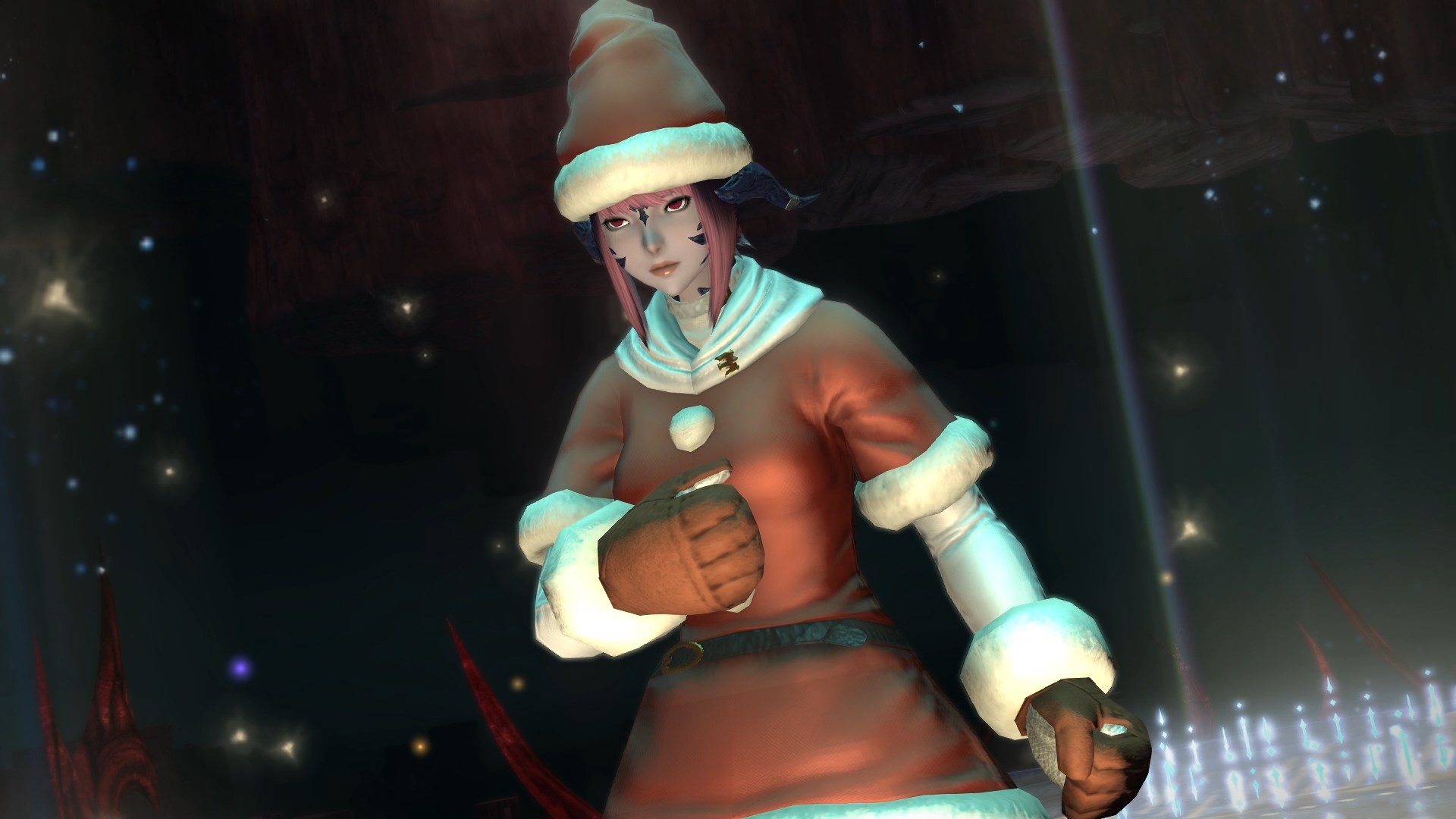
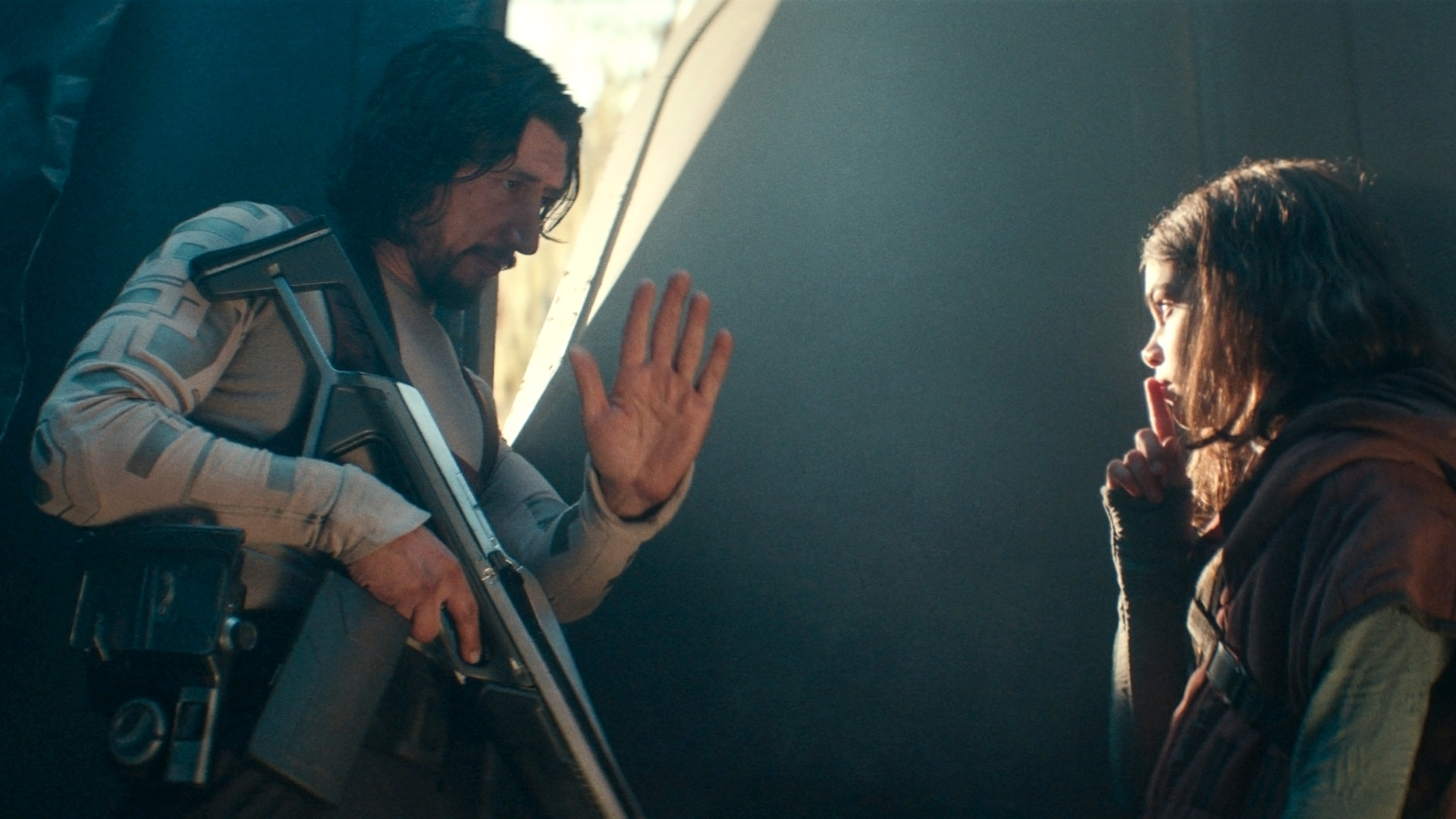
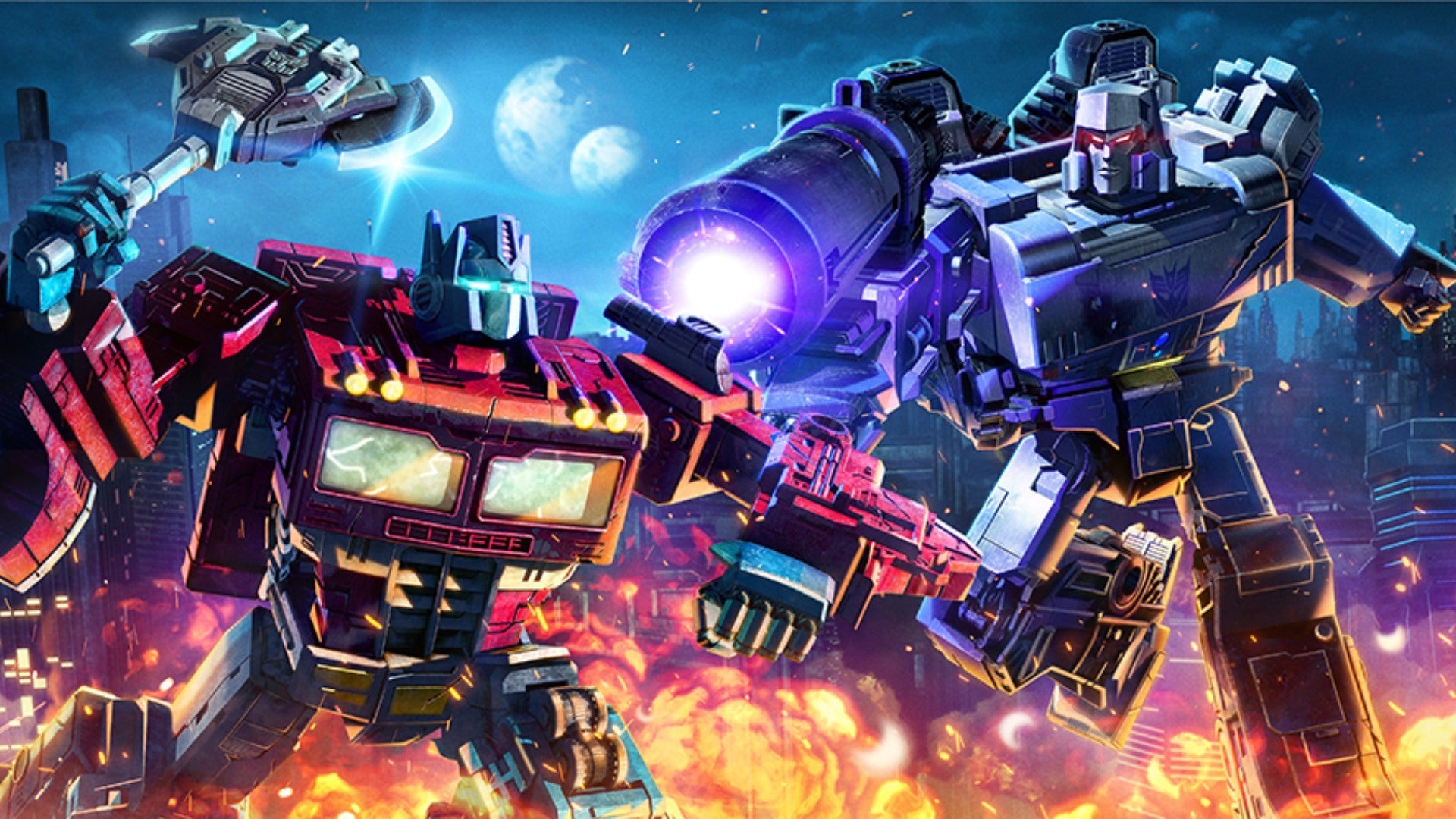
Leave a Comment